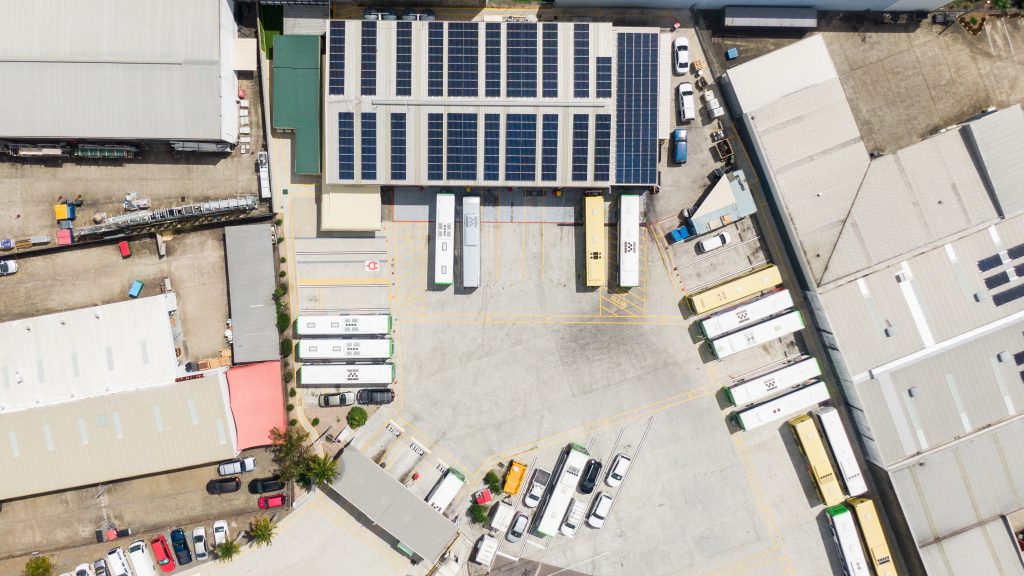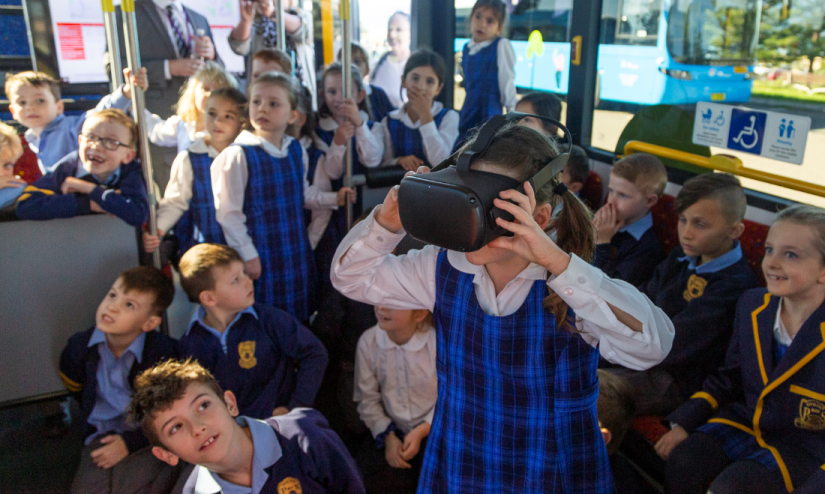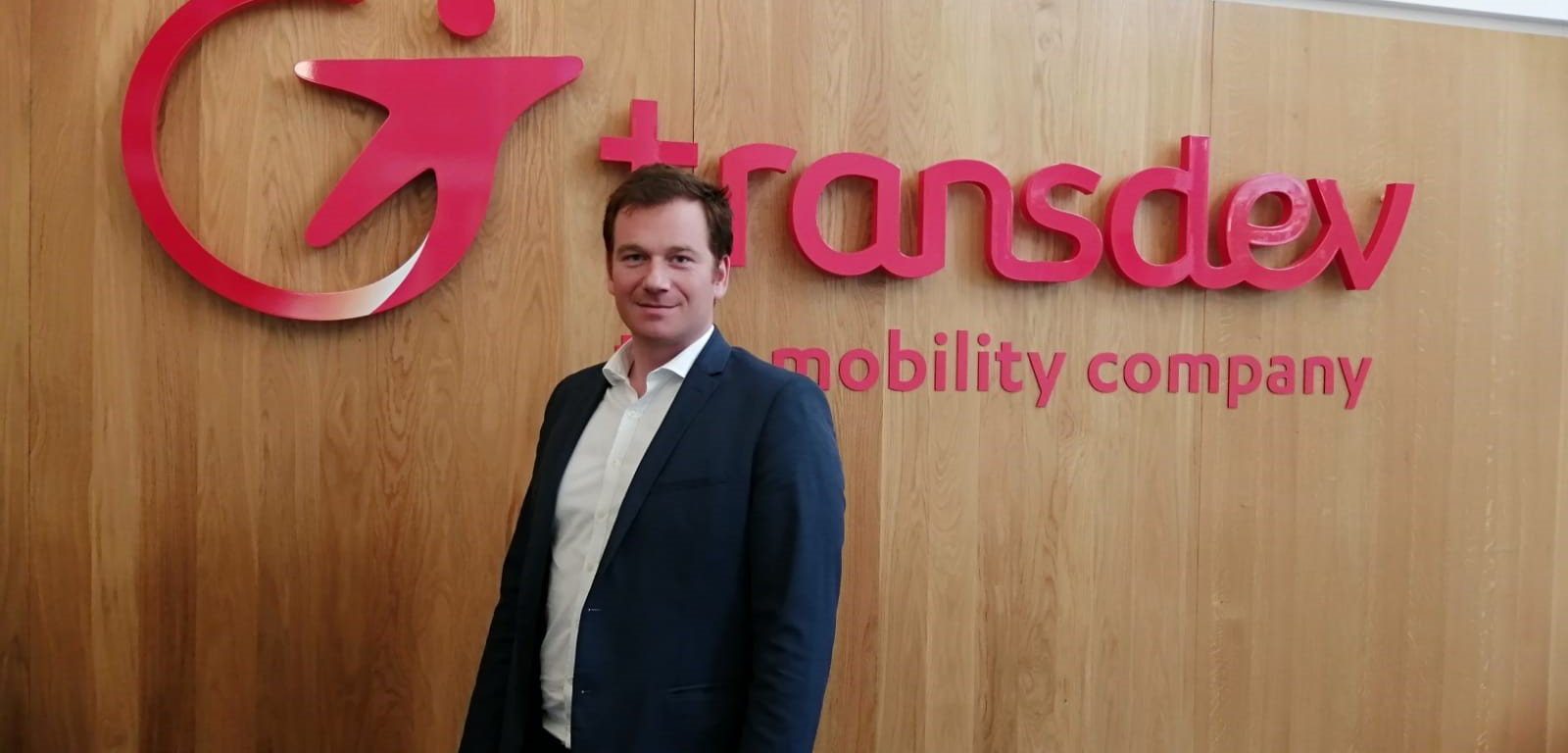As the global practice leader of the ZE Team, your role sees you at the forefront of Transdev’s mission to
help cities transition to zero emissions public transport fleets. What are the latest trends you are seeing
worldwide?
Tanguy: Governments are looking to the transport sector as a key driver of reducing emissions, and increasingly setting ambitious targets to transition to ZEBs with the support of operators – it’s a policy that makes sense, and a popular move with passengers. That’s spurring on investment from bus manufacturers, and innovative thinking from a wide range of stakeholders about how we can achieve the transition in the face of funding, political and infrastructure challenges.
Furthermore, the assets that we deploy as part of the bus operations – such as grid connections, chargers, on site battery storage, etc. – are all very useful and valuable to the energy and investment sector.
We are seeing new entrants from energy utility providers, smart charging or virtual power plant providers and financing organisation who want to collaborate with operators and public transit authorities (PTAs) to be a part of the rapidly expanding electric/fuel cell bus industry.
How does the current status of ZEBs in Australia and New Zealand compare?
Tanguy: I’m excited about what’s happening in Australia and New Zealand. The political, PTA and community will is clear and the transition is on the right path. For instance in New Zealand, Auckland Transport has adopted a Low Emission Bus Roadmap, committing to purchase only ZEBs from 2025 and reach full fleet transition by 2040, with a stated aspiration to achieve that goal even sooner. Metlink in Wellington is also
actively transitioning to ZEBs, with over 20% of the city’s buses planned to be electric by early 2023.
Transdev’s local teams in most Australian and New Zealand cities are engaged in ZEB trials or have begun rolling out sustainable electric or hydrogen powered vehicles as part of their operations.
What are the biggest challenges facing cities in transitioning an existing bus fleet to ZEBs?
Tanguy: The obvious challenges include solving the infrastructure challenge, managing batteries over their lifecycle, leveraging data to constantly optimise the total cost of operation, and working more collaboratively across industries with stakeholders such as utility providers, bus manufacturers, financiers potentially, and civil works contractors. Then of course, there are additional COVID related challenges such as pressure on government budgets and supply chain interruptions in the short term.
But, perhaps a less obvious challenge, that our experience tells us is equally important, is how to upskill your people that are driving, maintaining, or scheduling services etc. ZEBs change the operations and maintenance of a transport network significantly. Maintenance, for example, is now not only the bus, but also the batteries on board the bus, the chargers and grid connections as well; potentially requiring chemical engineering, data analytics and high voltage skills that were not needed with diesel buses.

What lessons can our region learn from Transdev’s global experience with ZEBs?
Tanguy: We’ve been on this journey for a number of years now, and by 2025 we expect to have over 5,000 ZEBs in operation around the world. Our experience tells us: go as big as possible from the beginning. You will only reap the full benefits of Electric buses when you have hundreds of buses running around.
Secondly, carefully consider your procurement strategies, such as who takes on the contract and financial risk during and after the contract – you don’t want the government buying buses up front that cannot be efficiently operated during a contract or handled afterwards by the PTA.
Finally, I’d say, act now. We see in Europe, and in our experience with trials in Australia and New Zealand, that it is cost effective to use Electric over Diesel in 2021. The transition can be cost effective if managed in the right way, collaboratively with the PTAs.
What’s your view on the hydrogen versus electric debate?
Tanguy: Hydrogen is a very promising fuel technology for ZEBs, and it may become the energy source of choice for transportation networks next to battery electric buses around the world in the future. We are currently working in partnership with several PTAs around the world actively involved in trials, including with Auckland Transport. It’s a close watching brief on how the technology and generation changes in both electricity and hydrogen in the years ahead.
Right now, however, battery electric vehicle technology is more commercially attractive and technological advanced, requiring less time to deploy. It’s not an either-or question from my point of view, but a dynamic decision that should be made based on what’s best for a city’s need at the given time.

How can Transdev support clients?
Tanguy: Transdev has led the way with the introduction of ZEBs in Europe, and we have taken positive steps working with our partners in Australia and New Zealand over the past two years too.
We can offer hard learned insights based on actual experience, not theory, and are currently developing a new tool internally, with strategic partners in Europe, to reduce the CAPEX and OPEX costs of ZEB operations. And, we regularly engage our clients to share international best practice in sustainable transport through the LivingLab events.

